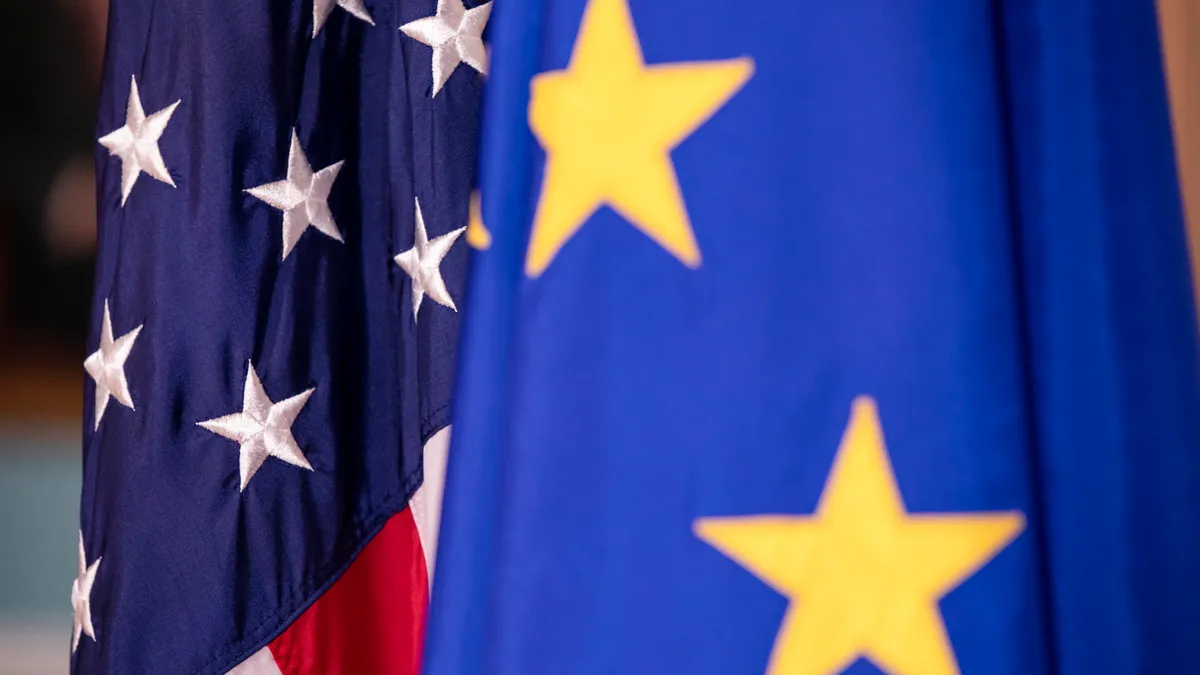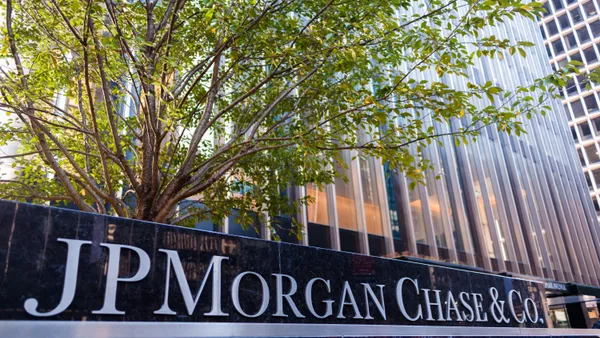Dive Brief:
- The Consumer Financial Protection Bureau and European Commission regulators have locked arms in three meetings since last July to review emerging digital payment concerns, including those related to the growth of the buy now, pay later industry.
- The U.S. agency, led by Director Rohit Chopra, and the EC, with direction from Commissioner Didier Reynders, have also zeroed in on studying big tech companies and their involvement in digital payments, with a particular interest in fraud.
- In addition, the regulators focused their attention on artificial intelligence and the use of AI by financial institutions in providing consumer financial services.
Dive Insight:
The CFPB and EC announced a pact last July for an “informal dialogue” on monitoring and regulation of emerging fintech technologies and financial services in an effort to safeguard consumers on either side of the Atlantic Ocean. Now, nearly a year later, they made a public statement last week about their efforts so far. They also noted what legal and regulatory frameworks exist currently to address new digital payment services.
“Consumer finance markets across jurisdictions have become increasingly similar over the past decade. It is critical for the U.S. and E.U. to coordinate on the firms, products, consumer trends, and risks that span the Atlantic,” Chopra and Reynders said in a joint statement last Thursday. “Our staff have shared expertise, best practices, and lessons learned on an important set of issues.”
Chopra and Reynders, who oversees justice and consumer protection, met on Feb. 20 to discuss their efforts on these issues, and Chopra also met with Mairead McGuinness, the EC’s commissioner for financial services, financial stability and the capital markets union, according to the statement last week.
Specifically, both regulatory regimes are concerned about growing consumer debt and the possible role of BNPL, a type of installment financing that often pitches itself as interest-free, but may include interest payments in some cases, or other fees. European regulators are generally worried about a forecast for increased consumer debt and the proliferation of BNPL players. The CFPB has also charted a rise in BNPL market participants and studied BNPL users, finding in some situations it may be a positive alternative to credit card use.
The regulators “discussed the differences and similarities between BNPL industry evolution in the E.U. and U.S., the consumer risks identified, the respective legal frameworks in place, and areas of respective future planned work,” the latest statement said.
Among their topics of concern was also the arrival of big technology companies in the business of processing digital payments. U.S. tech giants Apple, Google and Amazon have increasingly entered the payments market, developing digital wallets, such as Apple Pay and Google Pay, and other software tools, including Amazon’s palm pay feature, to compete in the market of providing payment services.
The tech companies’ involvement in payments services have already led to regulatory actions and litigation in the U.S. and Europe over the companies’ alleged monopolistic behavior in some instances. That includes the U.S. Department of Justice lawsuit against Apple lodged last month.
For the CFPB, there have been “efforts to address the risks associated with Big Tech’s increasingly important role in consumer finance,” the latest statement said.
When it comes to the advance of digital payments, especially with the involvement of those large tech players, the regulators also expressed concern about consumer fraud and the impact on unbanked consumers.
Finally, the two sets of regulators discussed AI, and its use for providing of consumer financial services, highlighting risks associated with it. While Europe has recently implemented four new laws and regulations related to AI, the U.S. has taken fewer actions, although the CFPB noted some guidance and recent studies on the topic.












